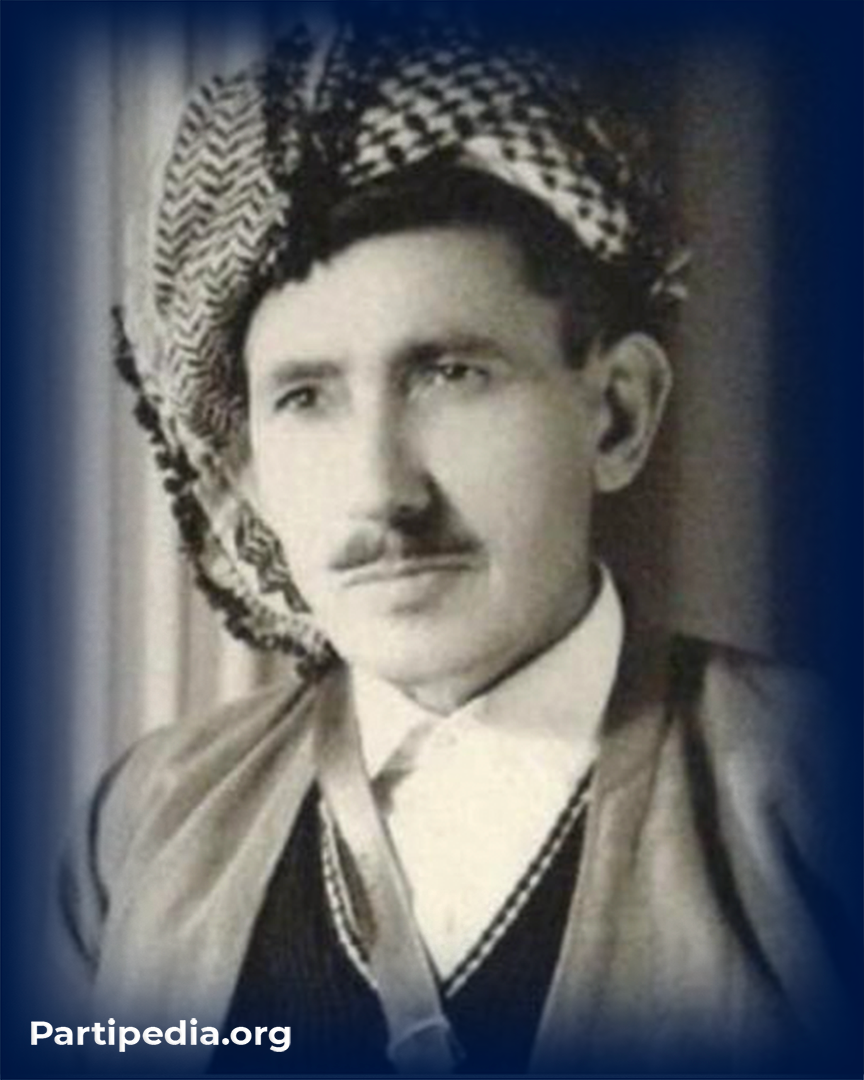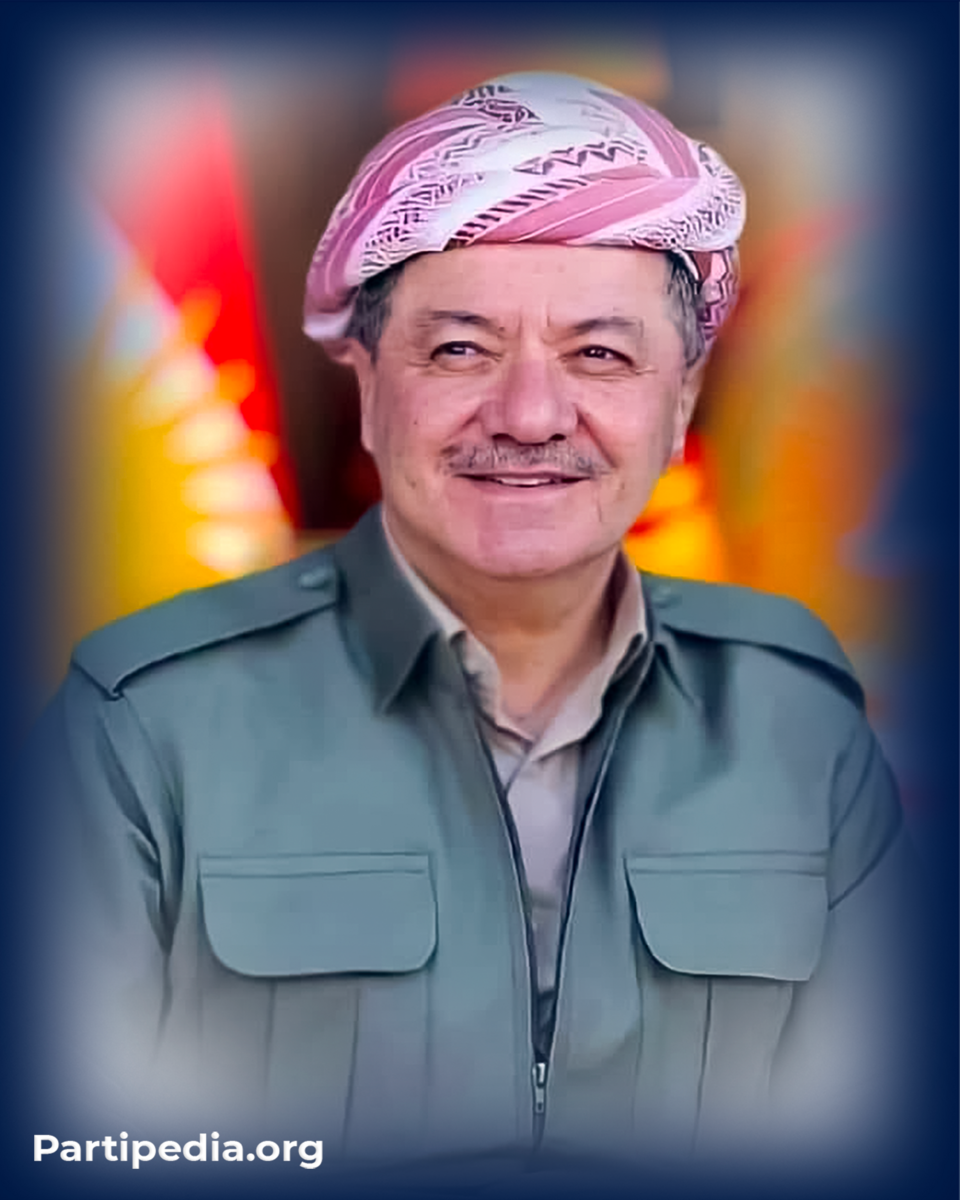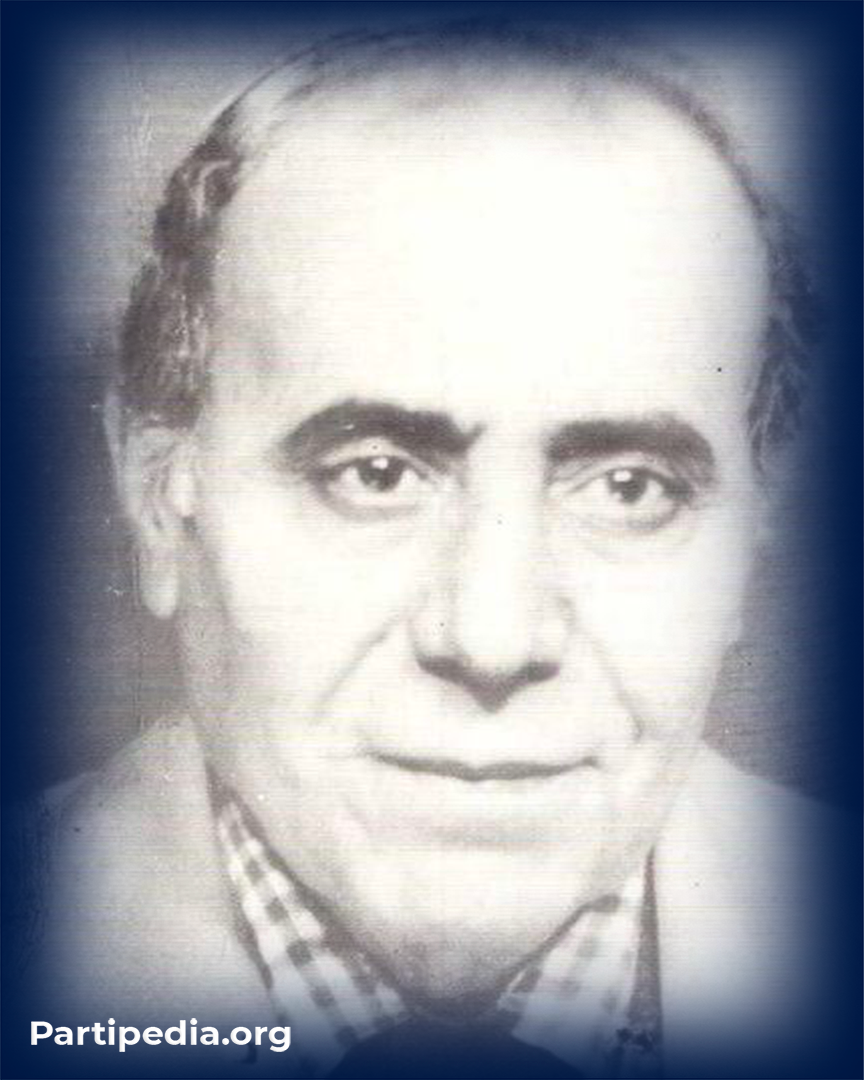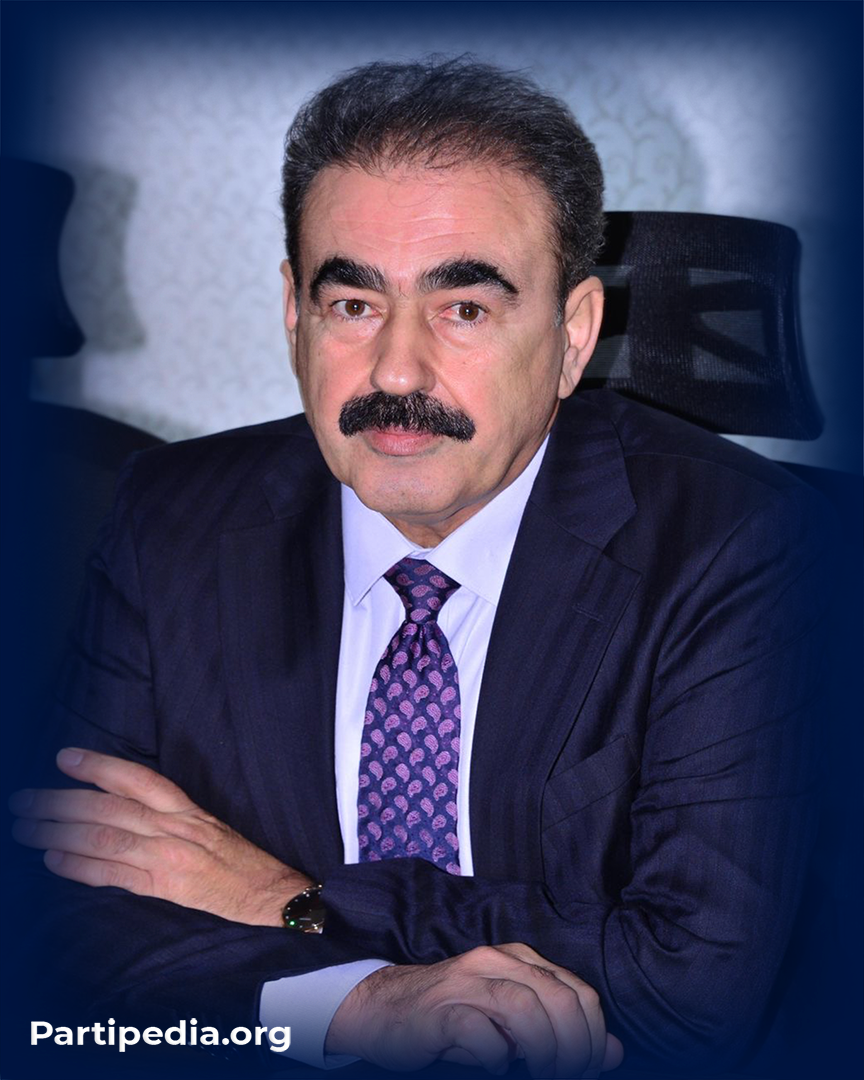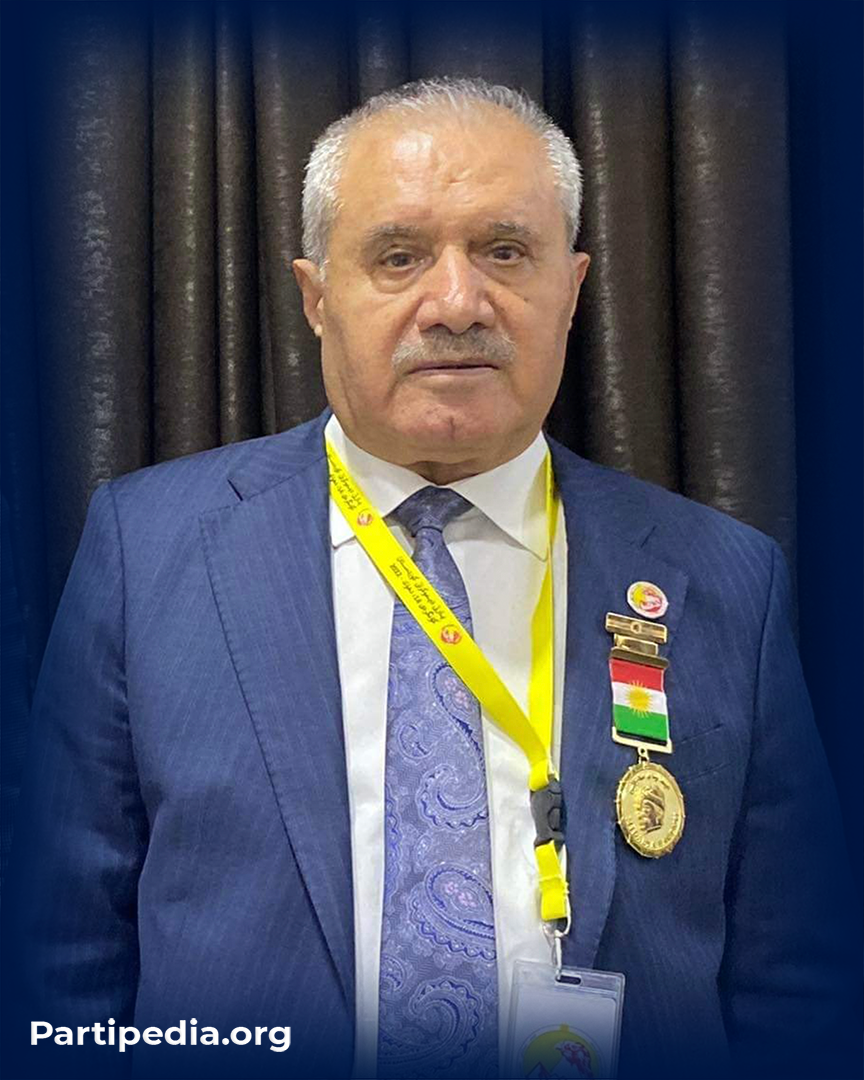Biography
Abdullah Ismail Ahmad, who was also known as Abdullah Mullah Ismail, Mullah Awlay Haji Smail, and Mullah Motor, was born in Erbil in 1937 and passed away on Saturday, April 22, 2000, in the same city. He spoke Kurdish and Arabic languages fluently.
Service Record
In 1949, he became a member of the Kurdish Democratic Party, and in 1950, he commenced employment with the railway department. In 1950, he became a member of the Kurdish Democratic Party (KDP), and four years later, he was chosen as a member of the Erbil Regional Committee of the Kurdistan Democratic Party (KDP). During this time, he faced a brief period of imprisonment by the Iraqi authorities in 1954. In 1955, he assumed the leadership role of the Erbil Regional Committee of the Kurdistan Democratic Party (KDP). Additionally, in 1954, he established both the Railway Workers Union and the Construction Union in Erbil. Furthermore, in 1956, he took charge of the Mosul organizations affiliated with the Kurdistan Democratic Party (KDP). On October 15, 1956, he, along with a representative from the Iraqi Communist Party, paid a visit to the Embassy of the Republic of Egypt. During this visit, he documented the demonstrations of the Erbil populace, expressing their discontent with the tripartite aggression launched by the United Kingdom, France, and Israel against the Republic of Egypt.
In 1956, he took the role of the second committee member of first branch of the Kurdistan Democratic Party (KDP) in Iraq. During the same year, he was apprehended and subjected to severe mistreatment while incarcerated at Kirkuk prison due to his involvement in Kurdish endeavors. Despite providing the requested bail amount of 200 dinars, he endured imprisonment until the beginning of 1958.
In 1959, he assumed the role of deputy head within the third branch of the Kurdistan Democratic Party (KDP) in Iraq. During the same year, he served as a member of the preparatory committee for the fourth congress of the Kurdistan Democratic Party (KDP) in Baghdad. Additionally, in 1959, he demonstrated leadership by commanding a group of volunteers from the Kurdistan Democratic Party (KDP) during the uprising led by Sheikh Rashid Lulan in the Syedkani region of Erbil province. His command resulted in the successful takeover of Erbil organizations and active participation in the ensuing conflict. The announcement made on June 30, 1959, during the second conference of the United Kurdistan Democratic Party (KDP) in Baghdad, declared the suspension of Hamza Abdullah Omar (1915-1998). In the same year, he was elected as a member of the Central Committee of the Kurdistan Democratic Party (KDP) during the Fourth Congress. On May 1, 1959, which marked International Labor Day, he delivered a speech on behalf of the Kurdistan Democratic Party (KDP) in Erbil. In 1959, amidst the tumultuous riots in Kirkuk, he assumed leadership of the third branch committee of the Kurdistan Democratic Party (KDP) in Iraq, with the backing of the British Consulate, advocating for non-violence and opposing any confrontations in Kirkuk. On the significant date of Saturday, December 8, 1960, he was appointed as a member of the esteemed founding committee of the Kurdistan Democratic Party (KDP). In 1960, he served as a conference committee member for the Garmian region during the fifth congress of the Kurdistan Democratic Party (KDP). Additionally, in the same year, he was elected as a member of the Central Committee of the Kurdistan Democratic Party (KDP) during the 5th Congress. In November 1960, he assumed the role of the head of Badinan and became a member of the Revolutionary Organization Committee within the Kurdistan Democratic Party (KDP). In 1966, following the uprising against the administration of Brigadier General Abdul Karim Qasim (1914-1963), who served as Iraq's prime minister, Abdullah Ismail Ahmad assumed the responsibility of overseeing the operations of the Kurdistan Democratic Party (KDP) establishments within the province of Mosul. In 1961, he assumed responsibility for the precise execution of Sadiq Miran Beg Khoshnawi in the town of Shaqlawa, located in the province of Erbil, who happened to be an ally and advocate of Zaim Rukan Abdulkarim Qasim (1914-1963). In 1961, he enlisted in the Peshmerga forces and was assigned to the Badinan region of Mosul province by the Political Bureau of the Kurdistan Democratic Party (KDP) to assume the role of the inaugural commander of the KDP He went on to establish three separate divisions within the Peshmerga forces. On August 20, 1961, with the assistance of lawyer Shamsaddin Mohammed Osman (1933-2012), also recognized as Shamsaddin Mufti, he and a contingent of Peshmergas launched an assault on the jashes' central command in Aspindara village, located in the Erbil province. Their efforts resulted in a triumphant outcome, enabling them to secure a substantial quantity of weaponry and ammunition. On November 1, 1961, he took the role of commander leading the ground attack of the Iraqi army in Balisan, located in the Erbil province. In the same year, he actively participated in the extensive gathering of Audalan, aligning himself with the defense and revolution, and subsequently being appointed as the head of the branch in the Erbil plain. On December 1, 1962, he was entrusted with the position of commander as the first branch of the Kurdistan Democratic Party (KDP) in Erbil. Between December 18 and 23, 1961, he actively engaged in the meeting of the Central Committee of the Kurdistan Democratic Party (KDP) held in the village of Audalan (Sulaimani), where he cast his affirmative vote in support of the continuation of the September Revolution. In May 1962, he actively engaged in the battle of Balisani Mountain in Sulaimani province, fighting against the Iraqi army. In 1963, he was assigned to the second branch of the Kurdistan Democratic Party (KDP) with the purpose of distributing aid to the Peshmerga and organizing their forces. The year 1964 saw his involvement in a significant gathering in Mawat, where he voiced his dissent against President Mustafa Barzani. Consequently, he was expelled from the ranks of the Kurdistan Democratic Party (KDP) in the same year due to his support for the Political Bureau wing during the 6th Congress. As his comrades sought refuge in Hamadan, Iran, he took shelter in Erbil. On August 28, 1966, he actively participated in the inaugural meeting of Ibrahim Ahmad-Jalal Talabani's group in Timar (GarmyanOn March 22, 1967, he actively participated in the inaugural gathering of Ibrahim Ahmad-Jalal Talabani's assembly in Kalar village, located in the Kirkuk province. During this meeting, he was elected as a member of the central committee. However, on December 14, 1967, he fell victim to an ambush orchestrated by the Kurdistan Democratic Party (KDP) Peshmergas near the Republic Hospital in Erbil. Despite this unfortunate incident, he abstained from joining the KDP when the Ibrahim Ahmad-Jalal Talabani group convened for their final meeting on December 27, 1970. During this meeting, the group decided to disband and endorse their reintegration into the KDP. Furthermore, in 1970, following the Kalar agreement on March 11, he assumed the responsibility of overseeing the armament of the Ibrahim Ahmad-Jalal Talabani group's forces. In the initial stages of December 1973, he assumed the role of a member within the preparatory committee of the Kurdistan Revolutionary Party (KRP), which was affiliated with the Ba'ath Party. On October 30, 1973, he actively participated in a gathering of certain individuals from the disbanded Kurdistan Revolutionary Party in Baghdad. During the same year, he also released the second edition of the Arabic-language newspaper Al-Nuri, which served as a platform for the Ibrahim Ahmad-Jalal Talabani group in Baghdad. In 1974, he relocated to Erbil and served as a guardian for the Iraqi government forces, responsible for maintaining control over the city. From 1974 to 1988, he held the esteemed position of minister of state within IraqOn February 12, 1977, he assumed the role of acting minister of transportation through a republican decree. During the same year, he found himself targeted by the Martyr's Blood Organization (Red Eagle), affiliated with the Marxist-Leninist Committee. In recognition of his contributions, the President of Mali bestowed upon him the esteemed Officers' Medal in 1981. Subsequently, in 1989, he concluded his service within the Iraqi government by choosing retirement.
In his works:
-
Sarbarday Zhyani Siyasim - Volume 1 –
Sources:
-
ئـ.د.ئـ، فایلی ژماره AJ-54، مێژووی لێژنهی لقی یهكی پارتی دیموكراتی كوردستان، ل 1.
-
كریس كوچرا، جنبش ملی كرد، ترجمهی ابراهیم یونسی، چاپ دوم، (تهران ـ موسسه انتشارات نگاه ـ 1377ھ . ش)، ص 376.
-
شوان محهمهدئهمین تهها خۆشناو، ههولێر له نێوان ساڵانی (1958 ـ 1963) لێكۆڵینهویهكه له بارودۆخی سیاسی، (ههولێر ـ چاپخانهی ڕۆژههڵات ـ 2012ز)، ل ل 89 ـ 90، 94 ـ 95، 100، 160، 173، 176، 203، 251، 258، 262، 268، 277.
-
شوان محهمهدئهمین تهها خۆشناو، ههولێر له نێوان ساڵانی 1963 ـ 1970 لێكۆڵینهوهیهكی مێژووییه له بارودۆخی سیاسی، (ههولێر ـ چاپخانهی زانكۆی سهڵاحهددین ـ 2016ز)، ل ل 32 ـ 33، 37، 250 ـ 251.
-
عبدالفتاح علي البوتاني، دراسات ومباحث في تاریخ الكورد والعراق المعاصر، (أربیل ـ دار سپرێز للطباعة والنشر ـ مطبعة حجي هاشم ـ 2007م)، ص 382.
-
تۆفیقی مهلا سدیق، بیرهوهریهكانی ڕۆژانی حیزبایهتی و پێشمهرگایهتی و دوور خرانهوهم، چاپی دووهم، (ههولێر ـ چاپخانهی شههاب ـ 1996ز)، ل ل 27، 104.
-
ئهحمهد دڵزار، بیرهوهری ڕۆژانی ژیانم، (ههولێر ـ وهزارهتی ڕۆشنبیری و لاوان ـ چاپخانهی شههاب ـ 2019ز)، ل 221.
-
بوار نوورهدین، كورد و كوردستان بیبلیۆگرافیا و پێڕستیان له كتێبی كوردیدا، بهرگی دووهم، (تاران ـ چاپخانهی تاران ـ 2016ز)، ل 132.
-
تاڵیب مۆریاسی، گهڕان بهدوای راستیدا، بهرگی یهكهم، (ههولێر ـ 2004ز)، ل ل 116، 132.
-
حبیب محمد كریم، تأریخ الحزب الدیمقراطي الكوردستاني ـ العراق (في محطات رئیسیة) 1946 ـ 1993، (دهوك ـ مطبعة خهبات ـ 1998م)، ص ص 61، 68، 91.
-
خورشید شێره، خهبات و خوێن بیرهوهرییهكانی ساڵانی خهباتی پێشمهرگایهتی، چاپی سێیهم، (ههولێر ـ چاپخانهی حاجی هاشم ـ 2015ز)، ل 120.
-
مسعود البارزاني، البارزاني و الحركة التحرریة الكردیة، المجلد الثالث، (أربیل ـ مطبعة وزارة التربیة ـ 2002م)، ص 144.
-
نوري شاویس، من مذكراتي، (بدون مكان ـ منشورات حزب الشعب الدیمقراطي الكردستاني ـ 1985م)، ص 82.




